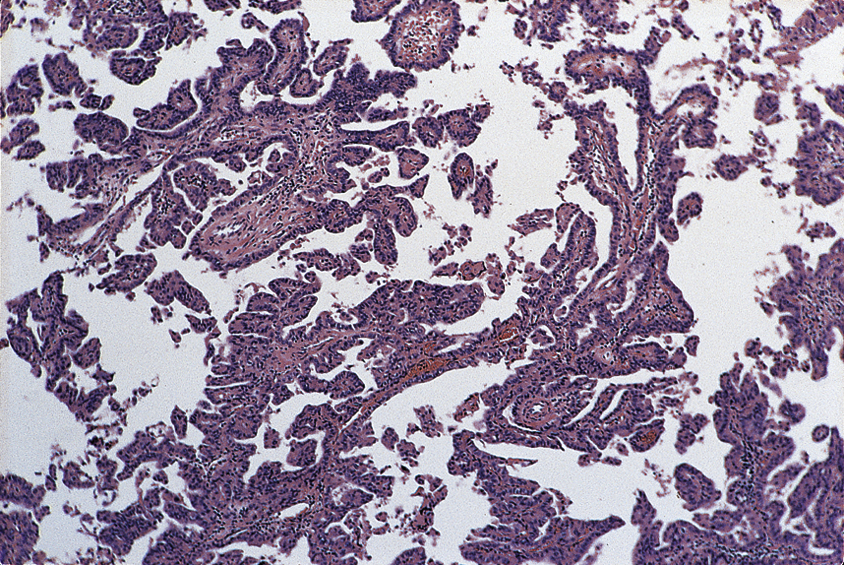thyroid cancer, a neoplasm of the thyroid gland, usually characterized by slow growth and a slower and more prolonged clinical course than that of other malignancies. A significant carcinogenic effect of exposure to ionizing radiation is demonstrated by the high rate of thyroid cancer in survivors of exposure to atomic bomb explosions and in individuals who have been treated with radiotherapy for an enlarged thymus in infancy or for acne or other skin disorders in adolescence. Nontoxic colloid goiters and follicular adenomas may be precursors of malignant thyroid tumors. The first sign of cancer may be an increased size of the thyroid gland, a painless palpable nodule, hoarseness, dysphagia, dyspnea, or pain on pressure. Diagnostic measures include x-ray examination, transillumination of the gland, radioisotope scanning, needle biopsy, and ultrasonic examination. More than half of thyroid malignancies are papillary carcinomas, about one third are follicular carcinomas, and the rest consist of rapidly growing invasive anaplastic carcinomas; medullary carcinomas that secrete calcitonin; and metastatic lesions from primary tumors in the breast, kidneys, or lungs. Total or subtotal thyroidectomy with excision of involved lymph nodes is usually recommended. Radioactive iodine may be administered after surgery, and high doses of exogenous thyroid are often used to suppress thyroid-stimulating hormone (TSH) in an effort to cause the regression of residual tumor dependent on TSH. Various chemotherapeutic agents, especially adriamycin, may be effective in patients with metastatic thyroid cancer that is unresponsive to conventional treatment. Thyroid cancer is twice as common in women as in men. Although it is diagnosed most frequently in people between 30 and 50 years of age, it may also occur in children and older individuals.

